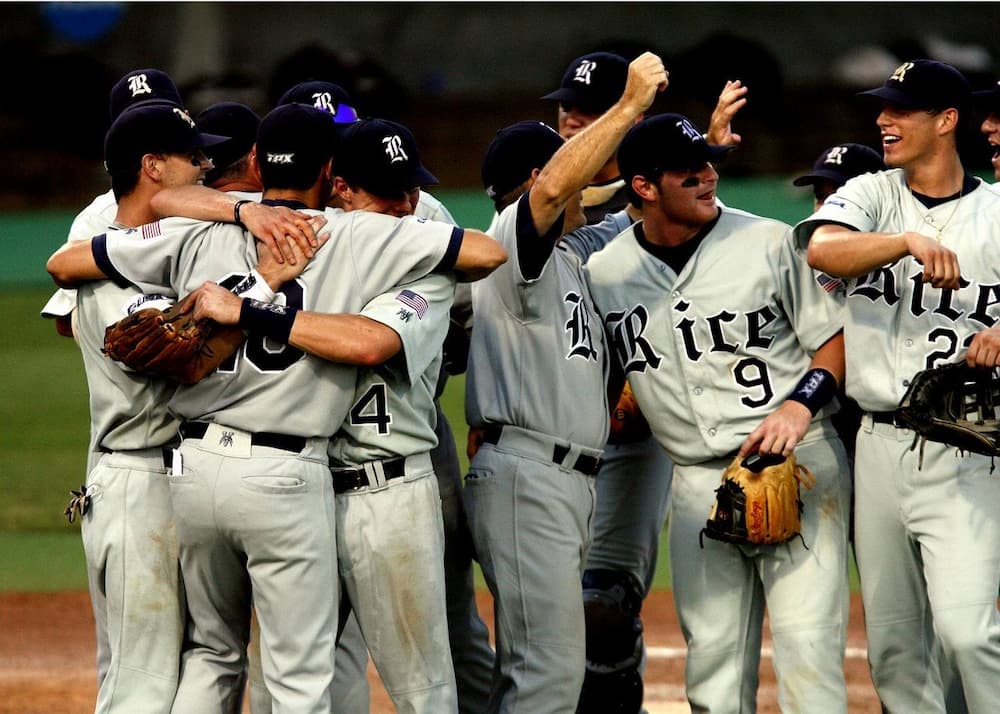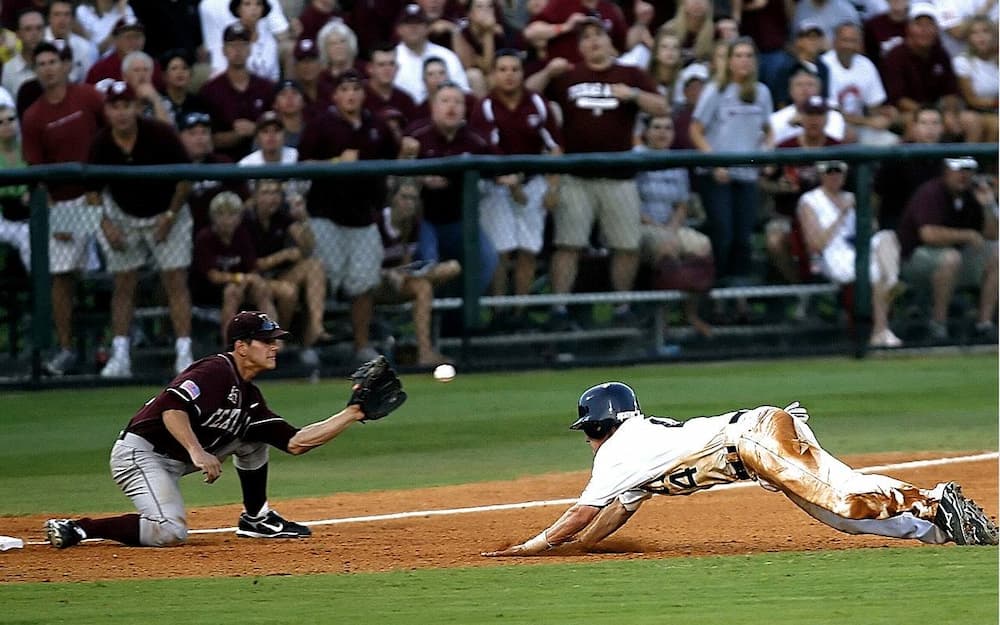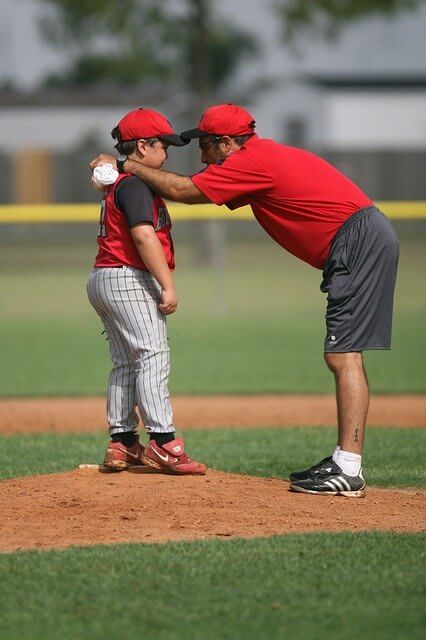If the baseball game is getting out of hand, a utility player can be the best option to save the game. He can play everywhere and create a positive impact. But do you know what is a utility player in baseball?
A utility player in baseball can play multiple positions in the game. He can be an infielder, an outfielder, or even can bat for the team if necessary. The utility player possesses the skill to perform in every position and can help the team win in critical situations.
Utility players are extremely valuable for a baseball team. Let’s explore everything about the utility players in baseball. Today, I will explain what a utility player means, when to use him, and how a utility player can benefit a team.
What Does Utility Player Mean in Baseball?
Usually, every player in baseball has a specific role. Such roles include pitcher, catcher, baseman, fielder, and more. But a utility player does not have a definitive role. He is “all in one.”
A utility player in baseball can play in multiple positions in a baseball game. He can be the first baseman, and the next moment, he can play in the center fielding position if the game requires. He can also be the catcher.
The versatility of the utility player makes him one of the most important players on the roster. The player can be used in different ways during the game to change strategies based on the situation.
Types of Utility Players
However, utility players can be of three types. They are:
- Infield utility players: These utility players mainly transition between various infield positions such as first base, second base, shortstop, and third base. They have good skills in handling ground balls, executing accurate throws, and maintaining infield communication
- Outfield utility players: Similarly, outfield utility players can play well in different outfield positions, such as left field, center field, and right field. These players possess the speed and agility to track down fly balls and chase down line drives.
- Hybrid utility players: Hybrid utility players possess the skills to play in both the infield and outfield positions in the baseball game. They are valuable assets to the team, as management can use them in almost all positions as necessary.
Not to mention, utility players mainly play in different defensive positions. Though they can also play in the offensive position, that is not very common.
When Can You Use a Utility Player?
The best thing about using baseball utility players is that it is flexible. You can use them anytime you want.
If a starter is injured, you can use the utility player in that position. You also can use a utility player as the substitute and deploy him when you need to change the game strategy.
Often a baseball team starts the game with a specific strategy. But due to the opponent’s performance, the strategy may not work. In that situation, if the team wants to change their game plan, a utility player can be greatly helpful.
Benefits of a Baseball Utility Player
As a baseball coach, I always love to have at least one utility player on the team. It allows me to be flexible with the game plan and enhances the chance of winning.
However, if you are unfamiliar with the use of utility players, you may wonder why utility players are important in baseball.

To answer your question, here are the benefits of having a utility player in baseball:
- Versatility: A utility player’s ability to play in a versatile position allows the coach to plan a strong defense, even in the face of injuries or rest days. The utility player steps up whenever a change is necessary in the game.
- Efficient roster management: An utility player means the roster needs fewer substitutes or replacements.
If there is no utility player, the team may need to have different substitute players for different positions. But the utility player eliminates that necessity resulting in efficient roster management.
- Tactical advantage: The utility player provides a tactical advantage by having an alternate game plan. For one game, you may win with a specific strategy. But in the next game, when you are facing a new team, you may need a different plan.
A substitute player will allow them to explore various options. You will not have to worry if you have a player for a certain position or not, as the utility player can play everywhere.
- In-game flexibility: Even if you start the game perfectly with your plan, the game can change at any moment. Some players can underperform or worse get injured. If you do not have a good substitute for that position, it can spoil the game.
But if you have a utility player in the team, you won’t have to worry about which position you need a substitute or replacement. Deploying the utility player in the right position can instantly turn the game in your favor.
- Performance under pressure: Teams usually deploy utility players when there is high pressure in the game. When active players on the field fail to get the expected results, they may fall under pressure.
In this situation, you can use the baseball utility player to create an impact on the game and ease the pressure. The strategy may not always work, but you will have the option to control a high-pressure game.
Once, I was having a great season with my baseball team. As a coach, I was pretty satisfied with the team’s performance. But then, in a knockout game, the opponent performed quite well, and the game was in their favor.
At that moment, I instantly changed my strategy and deployed the utility player that I kept as a substitute. Luckily the plan worked, and we won that game. This is why I always prefer having utility players.
Skills Required to be a Utility Player
If you want to be a utility player, you will need to have better skills than the others. While other baseball players have the skill to perform in a single position, you will need to develop the skill to play in multiple positions.

Here are some of the skills required to be a baseball utility player:
- Defensive proficiency: The utility player must possess strong defensive skills to play in different positions. He should be good at catching balls, making accurate throws, and excellent at handling ground balls.
- Adaptability: The baseball player must also have good adaptability skills. He should be able to quickly adapt to different positions and different situations in the game.
- Mental agility: The utility player should have the mental agility to make quick decisions, encourage the team, and create a positive impact. This is because the player usually comes into play when the game situation is difficult.
- Communication skills: As utility players mostly come when the game gets competitive, they should have good communication skills to pass information quickly.
- Tactical awareness: It’s essential for utility players to understand the game situations and make decisions based on that. It will help him to position optimally in the game and win for the team.
Notable Utility Players in Baseball History
Ben Zobrist is undoubtedly one of the best utility players in baseball history. He played over 200 games as a utility player and played a significant role in the Chicago Cubs’ 2016 World Series victory.
Tony Phillips is another great utility player in baseball history. He played in every position except the pitcher and the catcher.
Some of my other favorite utility players are Chone Figgins, Jose Oquendo, and Brock Holt. All of them played in different positions and helped their team win in critical baseball games.
FAQs:
1. Can utility players play both infield and outfield positions?
Yes. Utility players in baseball are known for their ability to play in different positions. If the game strategy requires, they can play in both the infield and outfield positions.
2. Can a utility player become a regular starter?
Yes. If the utility player possesses enough skill, he can be a regular starter. The player can contribute greatly to the team with his versatile performance skill.
3. Are utility players more common in certain positions?
Due to the nature of the baseball game, utility players are more common in infield positions. It helps them to pass vital information more efficiently and create a positive impact quickly.
4. Can utility players contribute to a team’s offense?
Yes. Although it is less common, utility players can also be used as hitters. They can show their batting skills in different positions and contribute to the success of the team.
My Final Opinion on the Importance of the Utility Player
I like to call the utility players “impact players.” They can enter the baseball game anytime and make a quick impact. The impact can turn the game instantly and make the team win.
I have a few utility players on my team, and I try my best to train them well for all the positions. Utility players are undoubtedly one of the most valuable assets in a baseball team.

Hello everyone. My name is Jason Butler, and I live in California, America. I was a professional AAA Minor League Baseball player. I lost my chance of playing MLB for injury issues, but I did not lose my love for baseball. I attended the coaching training program and am now working as a coach in a small school in San Diego.
I always love to share my experience and knowledge if that can help you. Play baseball, and stay fit.
